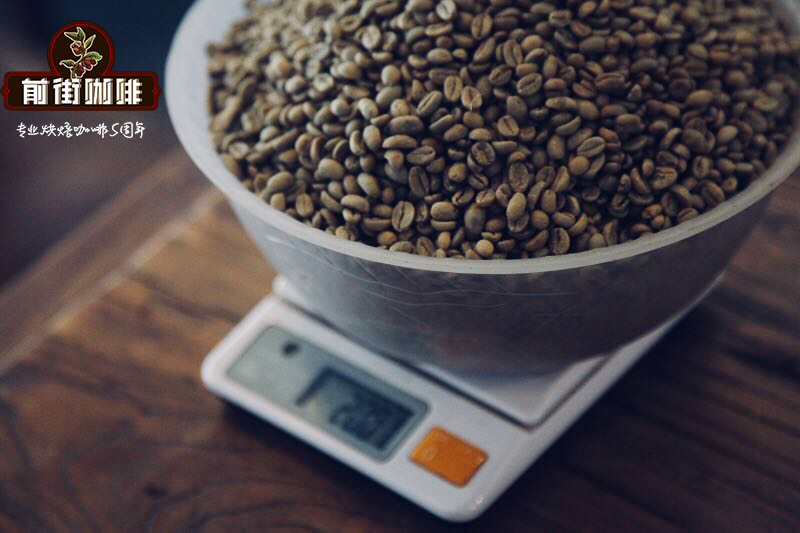Flavor characteristics of Costa Rican Puttalas Coffee Flavor difference between Solar and Honey treatment

Costa Rican Arabica coffee beans
Costa Rica Alabica coffee beans
Origin: Puente Taras Costa Rica Puttalas Costa Rica
Manor: Mega Mill Coffee refinery farm
Beans: Arabica coffee beans
Variety: Typica Tibica
Refined treatment: natural sun treatment (high drying bed)
Grade: SHB EP AAA
Costa Rican coffee with bold flavor, rich layers and delicious honey
Costa Rica has more than 100 coffee trees per person. In Costa Rica, which has 3.7 million people, this means that there are about 400 million Arabica coffee trees in the country! Yes, Costa Rica is the only country in the world that only grows high-quality Arabica coffee trees. In order to ensure the pure Arabica quality of coffee beans in Costa Rica, prevent the hybridization of coffee varieties, refuse to enter and plant non-Arabica coffee species such as Robusta, and legislate to protect them.
Ticos (Costa Ricans) will keep a lot of their own beloved high-quality coffee beans at home. You can find a "chorreador" in almost every home in Costa Rica, a coffee extraction device that can be used to make a bottle or a cup of coffee called "coffee socks". The coffee extractor consists of a wooden frame that supports a cotton filter that holds coffee grounds, and then pours hot water into the cotton filter where the coffee powder is placed, allowing the cotton cloth to be absorbed into the coffee liquid and then slowly seep into the coffee cup below.
The unique combination of ecological and natural climatic factors of Mount Arenal and other volcanic groups creates a perfect environment for coffee cultivation in Costa Rica. The soil transformed from volcanic ash in the soil brings a slight sour taste to the soil. In addition, the soil is rich in organic matter, making it an ideal carrier for coffee plants, whose roots can thrive in this fertile soil. and achieve a perfect balance between natural climate temperature, humidity and sunlight oxygenation.

70 per cent of Costa Rican coffee is grown in the mountains of the country at an altitude of 1000 to 1700 metres. Above the tropical rainforest, the Costa Rican mountains maintain a perfect temperature of 17 °C to 22 °C for coffee, continuously saturated humidity and Rain Water, as well as daily sunlight. Adding them all gives Costa Rica the most suitable conditions for growing coffee in the world, almost the same as if you grow coffee in a greenhouse.
Coffee Manor Coffee Cherry Fruit Collection
Preliminary cleaning of coffee fruit screening
The peel and pulp of coffee beans were removed and refined by fermentation and washing.
Natural sun-cured coffee beans.
Grading of Costa Rican coffee beans:
Costa Rican coffee is relatively low in elevation compared to Guatemala. The highest planting altitude of coffee trees is about 1800m, while the raw coffee beans, which are rated as the highest grade SHB, are planted at an altitude of about 1200m to 1650m.
Important Notice :
前街咖啡 FrontStreet Coffee has moved to new addredd:
FrontStreet Coffee Address: 315,Donghua East Road,GuangZhou
Tel:020 38364473
- Prev

How about Essenan Thurber G1 Coffee and Yega Sheffield? Is Nensebo coffee sweet?
Ethiopia Sun South Sabo G1 berry Ethiopia Coffee Lamp Series Nensebo Queen Berry Natural G1 flavor description: ground to give off a full of lime aromas, accompanied by pineapple, passion delicate and juicy taste, with strawberries, blueberry fudge sweet, finish to give you a slight tropical fruit wine. Guji Nensebo Keble grade of production area
- Next

El Salvador Mirabela bourbon washing flavor characteristics introduce the quality of Santa Ana coffee?
El Salvador Mirabella bourbon washing cup test flavor: soft fruit aroma. BlackBerry. Cherry。 Muskmelon. Pineapple, sugar. Mango acid. Clean and balanced Farm: Miralvalle Mirabella Manor owner: Jaime Ernesto Riera Menendez area Santa Ana volcanic area Apaneca-Ilamatepec altitude: 1650 meters Certification: RainForest Alliance Cer
Related
- Detailed explanation of Jadeite planting Land in Panamanian Jadeite Manor introduction to the grading system of Jadeite competitive bidding, Red bid, Green bid and Rose Summer
- Story of Coffee planting in Brenka region of Costa Rica Stonehenge Manor anaerobic heavy honey treatment of flavor mouth
- What's on the barrel of Blue Mountain Coffee beans?
- Can American coffee also pull flowers? How to use hot American style to pull out a good-looking pattern?
- Can you make a cold extract with coffee beans? What is the right proportion for cold-extracted coffee formula?
- Indonesian PWN Gold Mandrine Coffee Origin Features Flavor How to Chong? Mandolin coffee is American.
- A brief introduction to the flavor characteristics of Brazilian yellow bourbon coffee beans
- What is the effect of different water quality on the flavor of cold-extracted coffee? What kind of water is best for brewing coffee?
- Why do you think of Rose Summer whenever you mention Panamanian coffee?
- Introduction to the characteristics of authentic blue mountain coffee bean producing areas? What is the CIB Coffee Authority in Jamaica?

